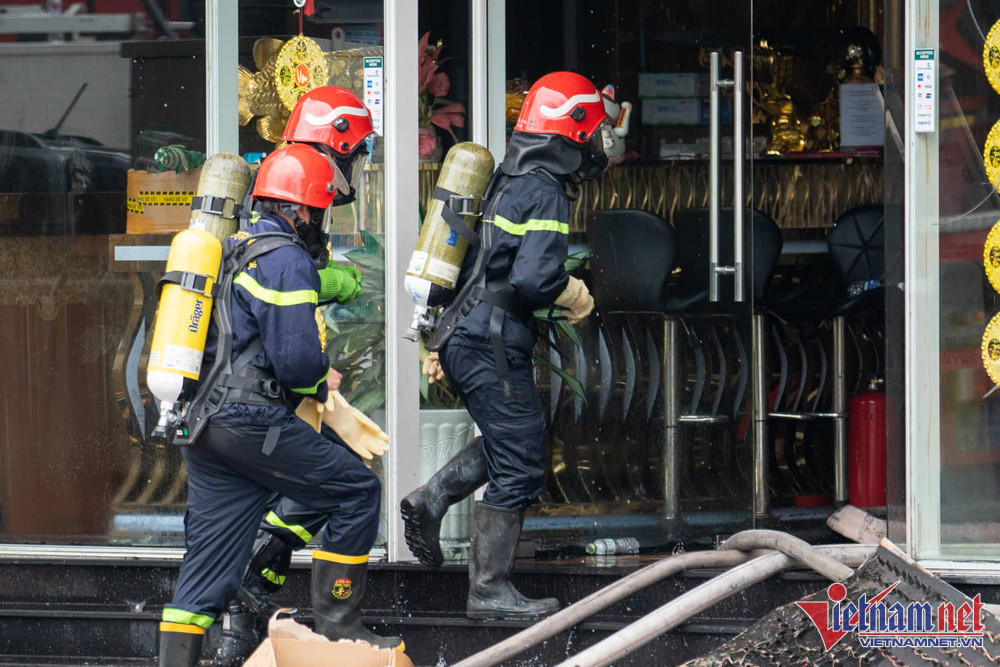
Pham Thi Ngoc Thuy, managing director of the Office of the Board for Private Economic Development Research (Board IV) under the Prime Minister's Advisory Council for Administrative Procedure Reform shares her opinion about the matter below:
The standards and regulations on fire prevention and control are bottlenecks in the business environment that enterprises have been complaining about since Tet.
Just within 18 months, several legal documents were released which set standards and regulations related to fire prevention and control which are very difficult for enterprises to implement.
Many businesses do not know how to comply properly.
Many enterprises are building workshops and warehouses under old regulations on fire prevention and control, but when construction finishes, the inspection agency tells them to observe the new regulations.
These include standards and regulations that are not feasible in Vietnamese conditions.
Some standards have been heightened to be equal to those being applied in the UK.
It is true that Vietnam needs to strive for higher standards in order to avoid risks for the community and society.
However, if the requirements are too high, businesses won’t be able to observe them and compliance costs will not be within enterprises’ reach.
There are detailed requirements about fireproof paint, but this kind of paint has not been licensed to be available in the market and no enterprise in Vietnam can make this product.
As a result, construction works cannot be inspected, officially accepted and put into operation. Such impractical requirements confuse enterprises.
Under current laws, an apartment building with 20 or more stories must reserve one floor for residents to seek shelter and there must be a ventilator which can deal with a high temperature of up to 400oC within two hours.
The regulation clearly stipulates that the floor can be used for community purposes when it is not used for the shelter purpose.
With such unclear regulation, residents and owners of the apartment buildings don’t know how they can use the floor.
Construction works are required to have fire escapes, one inside and one outside. As a result, many works have been operating under old regulations, i.e. they only have an inside fire escape and they don’t know what to do to install an outside fire escape.
Many A-class building owners complain that they complied with all regulations, but after construction ended, the work did not meet the new regulations.
Some fire prevention and control standards and regulations are applied generally to all construction works, regardless of scale and function.
As a result, the compliance costs of enterprises building small works are much higher than the estimates.
Many functions, tasks and rights in management overlap. Some works just need certificates granted by commune authorities, but they are still required to be inspected by the Ministry of Public Security (MPS) and the Ministry of Construction (MOC).
One item of construction work bears the inspection of three agencies.
Thousands of enterprises face dilemma
The Prime Minister and ministries have taken action to remove the problems that hinder enterprises’ development. However, enterprises still wonder when and how the regulations would be amended.
MPS and MOC have been told to check standards and regulations set in circulars. However, it will take time (many months) to amend the legal documents. This worries thousands of enterprises.
Over 1,600 enterprises in Binh Duong, thousands of enterprises in Dong Nai, and many other enterprises have been asked to suspend construction works and operation.
However, if they have to wait one more year for new circulars to come out, they may go bankrupt.
Meanwhile, other enterprises dare not think of investing and scaling up production.
Enterprises complain that MOC released two circulars with the new circular replacing the old one, but there has been no guidance for transitional projects.
As a result, newly built works are not accepted because they have been built in accordance with old regulations.
Pham Thi Ngoc Thuy